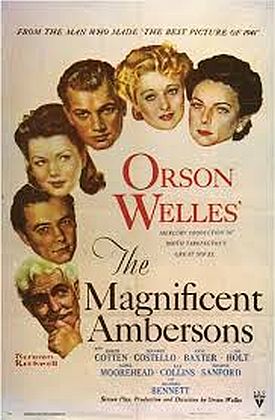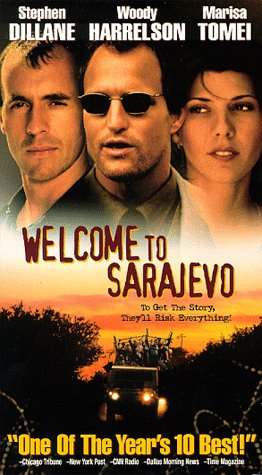Imposter, The
The eponymous center of director Bart Layton’s attention in The Imposter is Frédéric Bourdin, the product of a fleeting liaison between a teenage French girl and an Algerian, who ran away from his not-much-of-a-home at an early age and made a youthful career out of inventing for himself new identities that he thought would enable him to fit in with those whom he appears, for some reason, to have thought of as more normal people than those he was used to — people, at least, who found it normal to believe his habitually monstrous lies. “For as long as I can remember,” he tells Mr Layton’s camera in this true-crime documentary with some re-enacted bits, “I wanted to be someone else, someone more acceptable.” By the age of 23 in 1997, he had perfected his act as a shy and withdrawn teenager whose alleged history of horrible abuse made people want to help him.
In that year, finding himself in a home for wayward youth in Linares, Spain, and in desperate need of a stratagem to prevent himself from being fingerprinted and, as he thought, sent to prison, he telephoned the National Center for Missing and Exploited Children in Alexandria, Virginia, and, pretending to be a Spanish policeman, asked if they had anyone on their books vaguely answering his own description, or the description he was now used to giving of himself. They came up with the name of Nicholas Barclay, who had gone missing from his home in San Antonio, Texas, three and a half years before at age 13. Frédéric thought, on the basis of a grainy, black-and-white fax of Nicholas’s photo, that he could impersonate the boy, though he was more than six years older than the latter would have been and spoke English with an undisguisable French accent.
Even more dismayingly, when he finally saw a color photo of the missing child, he realized that he looked nothing at all like him. Nicholas was blond and blue-eyed; Frédéric was dark and brown-eyed. “The only thing we had in common,” says Frédéric humorously to the camera, “was five fingers on each hand.” Was he daunted by the task he had set himself? Only for a moment, perhaps. Seeing no way out when told that his (or Nicholas’s) sister was on her way from America to take him home, he dyed his hair and decided to brazen it out, trusting to luck. His eye color, he claimed, had been altered by the cruel “experiments” done on him by the American military men who had kidnaped him and subjected him to horrific sexual abuse for more than three years. The sister, Carey Gibson, somehow found it natural to think that her little brother “wasn’t the same person. He had been held and tortured and God knows what else.”
She, the older sister, is for me the real center of interest in The Imposter, not the budding con-man Frédéric Bourdin, who is more extensively interviewed on camera and who is chiefly interesting as an illustration of how and why a confidence trickster must regard his “mark” with contempt. To me he comes across as a loathsome and poisonous creature willing to make the vilest sorts of allegations against people who had trusted him, believed his outrageous lies and shown him all sorts of kindnesses. Even those who take a more charitable view may understand that he is doing one of his impersonation numbers on us, too, using selective and supposedly revealing truths exactly as he once used lies to ingratiate himself with those who, for various reasons, want to believe him. Having eked out a precarious existence for so many years by being smarter than those around him, as well as being utterly without a conscience, he now flatters us by inviting us to join him in looking down from his position of superiority on the poor dupes he hoodwinked.
It’s not a very attractive position to find oneself in — unless, perhaps, one is a member of the media and thus more accustomed than most people to despising the generality of mankind as being less intelligent than oneself. Mr Layton, I’m afraid, cannot be entirely acquitted of the same tendency, though he allows Ms Gibson, the imposter’s most visible victim, to condemn herself with a minimum of editorializing on his part. “Spain? Isn’t that, like, across the country?” she remembers thinking to herself on first hearing the news, as she thought, of her brother’s unexpected survival. She also pronounces “escaped” as “excaped” and makes other little linguistic faux pas to fill in the picture of unnatural naivety and gullibility that the film means to paint. And, in its final moments, she condemns herself explicitly. “How” she asks, “could I have been so f***ing stupid?”
She does so, however, even as Mr Layton has moved on, following but not quite keeping pace with his more glamorous subject, to suggest that she was not stupid at all but covering up her own or other family members’ part in Nicholas’s murder. Why else would they have received someone whom they must have known to be a foreigner and a stranger into their home and treated him as one of their own? Well, there’s an obvious answer to that question, but the kind of people for whom movies like this one are made tend to look down their noses at the obvious, as they do at poor Carey Gibson. Nicholas’s mother, Beverly Dollarhide, is a drug addict and harder to warm up to, though she has obviously made some effort over the years to keep her little family together. Other family members don’t get as much time on camera as the self-important private investigator, Charlie Parker, who first came up with the crackpot theory, to which Mr Layton gives much too much time, of a family coverup. But Carey’s reliving of her experience and her moments of self-discovery before the unblinking camera are both painful and weirdly inspiring to watch. She’s what makes the movie worth seeing.
Discover more from James Bowman
Subscribe to get the latest posts to your email.








